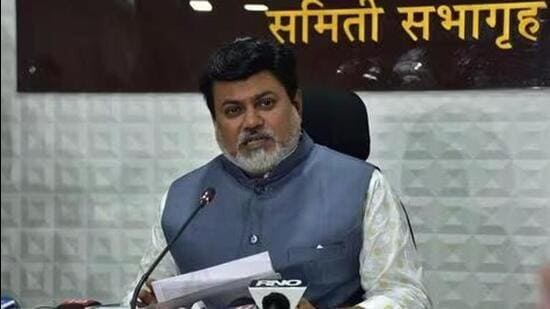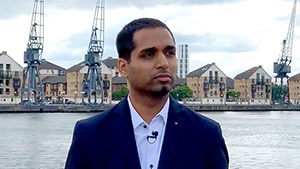Days after the Maharashtra government’s new IT/ITES Policy 2023 was announced, with a focus on promoting innovation in emerging technologies as well as additional subsidies, the state is in talks with companies in the UK for investment.
Maharashtra minister of industries Uday Samant confirmed to HT on the sidelines of the London Tech Week 2023 that the focus will be on promoting innovation of tech, support for start-ups, and a special focus on semiconductor manufacturing.
The state is taking a unique approach towards attracting investment, something Samant points out, which blends state incentives in addition to the ones provided by the centre, along with infrastructure projects and simplification of approvals in the state. “We are open to having a customized package of incentives. It is like window shopping where investors speak with other states also,” he says.
Also Read: Compound semiconductors dictate evolution of gadgets, EVs and quantum computing
Maharashtra wants more UK companies to set up manufacturing facilities and innovation centres in the state. At this time, British companies, including Vodafone, fintech company Revolut, telecom operator BT, banking giants Standard Chartered and HSBC as well as digital infrastructure company Colt, already have a presence in the state.
“We have 293 industrial areas in the state now, of which 143 are large ones,” says Vipin Sharma, who is the CEO of the Maharashtra Industrial Development Corporation (MIDC).
The focus is on readying infrastructure projects which make the state more attractive for investment. This includes the Delhi-Mumbai industrial corridor, the upcoming Vadhavan Port and the Samruddhi Mahamarg expressway across the state, to name a few.
“First we say, come to India. Then we say if you decide to come to India, invest in Maharashtra,” says Deependra Singh Kushwah, who is the Development Commissioner (Industries) & Export Commissioner for the Government of Maharashtra.
For Maharashtra, the focus areas with the new IT Policy are the manufacturing of semiconductors, fintech, and automotive manufacturing, including localised battery production and start-ups. “Mumbai is the FinTech hub of the country,” says Samant.
The state is looking at a regional push for certain sectors. For instance, the Mumbai, Thane and Raigad districts will focus on pharmaceuticals and engineering, the Nagpur and Amravati belts will be the base for aerospace and textile projects while the Pune and Chakan regions will see the allocation of land and resources for data centres, auto and components manufacturing as well as jewellery.
“Semiconductor is a scale, which will require some initial investment,” says Sharma, pointing out that engineers in the country have been working on similar systems for decades, which makes it simpler for company investment in a semiconductor fabrication facility in the state, to find human resources.
With the contours of India’s Free Trade Agreement with the UK still being worked out, there is a pitch to make investment in Maharashtra more attractive, with an eye on the future. Semiconductor manufacturing, in proximity to industries that’ll need them, is one that the state has an eye on.
Also Read: As robots grow in strength, industries integrate them with human workforce
“In case the Free Trade Agreement happens, these semiconductors can come to India at a lesser cost without any duties. If India starts manufacturing, the chips can be exported to the UK,” says Sharma. He points out that the consumption, and the market, is much larger in India.
The Maharashtra IT/ITeS Policy 2023 targets 35 lakh new jobs, alongside ₹1,00,000 crore new investment in the state and increase the exports from a present ₹1.47 lakh crore share to ₹2 lakh crore. The previous policy, from 2015, achieved 23.35 lakh employment opportunities, attracted ₹61,872 crore in investment, and exports totalled ₹1.47 lakh crore.
There will also be a Maharashtra Hub (M- Hub) tasked with promoting innovation in emerging technologies, which the state hopes will build a “knowledge-led economy”. Rs. 500 crore have been allocated for this.
“We will be supporting startups and innovators in the early stage. They will get a co-working space where they can start their office. They will be getting the testing and certification labs. They can create their own prototype there and the necessary mentoring support. The goal is to create an ecosystem for the startups,” says Kushwah.

